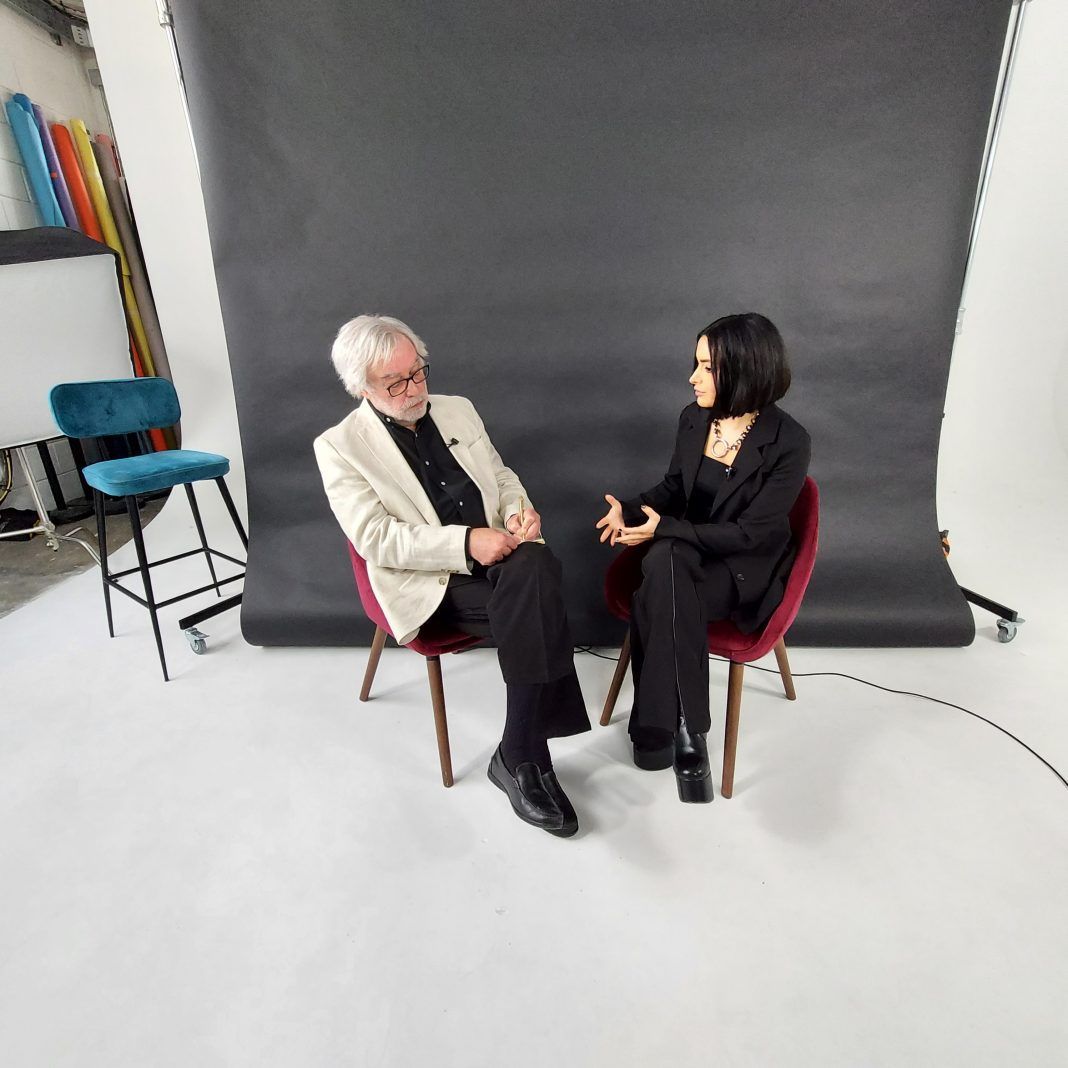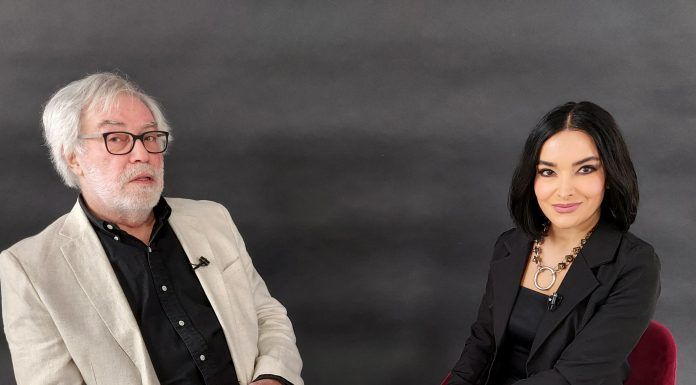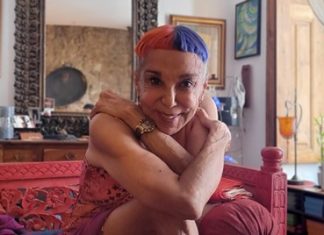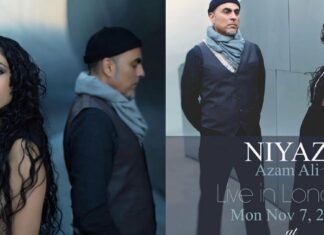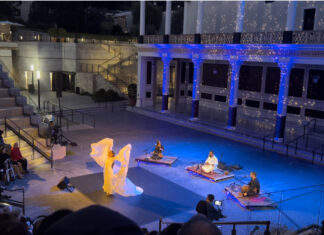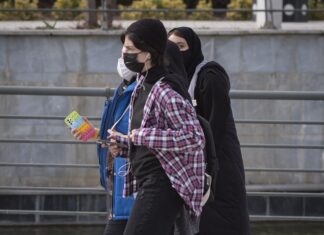By Ahmad Rafat
Golazin Ardestani, better known as “Golazin” or “Gola,” is an Iranian-born Trap pop and urban singer. She has recently released her latest single, Haghmeh, which is about the mandatory hijab imposed on Iranian women.
Haghmeh is not Golazin’s first protest song. The singer has released several others in Persian, including Betars Az Man (“Fear Me”), which deals with the youth resistance, Khodavanda (“God”) highlights poverty, and Khodam Boodam Anja (“I Was There”) describing living conditions in Iran.
Golazin, who lives in London, also has two singles in English, “The Line” and “Now You Know,” released by Zan Records.
Golazin was born in Tehran but grew up in Isfahan. She became interested in music at an early age, studying piano, santur, and flute, and later received a degree in composition and performance from Soore University (SU), a private research university established in 1994 in Tehran.
Golazin moved to London in 2011, where she studied music psychology at Roehampton University. Her impressive musical resume includes a collaboration with prominent Israeli songwriter and musician Idan Raichel, whom she accompanied during his world tour and performed one of his songs, God Knows, in Farsi.
The following is Kayhan Life’s interview with Golazin Ardestani.
Since its release on social media, there has been a massive and positive response to your latest song, Haghmeh. It is about mandatory hijab in Iran.
The mandatory hijab [law] troubled me while living in Iran. [Police] even detained me several times. Anytime I left the house, my mother would say she would pick me up from the police station later that night.
They [police] would release me every time. There was less pressure [on people] those days, and things were not as bad as now. [Courts] hand lengthy prison sentences to some women who violate the hijab law.
The song highlights the rights of people to choose what they want to wear, and women should be free to wear what they want.
The title of one of your songs is Betars Az Man (“Fear Me”) — why should the person fear you?
This is an excellent question. All Iranians know who should fear them. The despotic Islamic Republic, which rules through oppression, must fear my generation, who knows its rights. We have learned from the previous generation and will not repeat their mistakes. Old tricks do not fool this generation, and we will fight for our freedom and refuse to stay at home. We are not scared anymore because we have nothing to lose.
You sing happy songs and love songs as well as protest songs with political messages.
This is also a good question. I was always concerned about performing songs that dealt with social issues. My generation has been familiar with these concerns since childhood, and our entire lives have been a massive challenge.
However, I do not want to be known as a singer who only performs songs about social issues, and I believe artists should also spread joy and happiness. While studying music psychology at university, I concluded that we need music every minute of our lives.
Music can make a person fall in love, dance, feel sorrow, and fight. In Iran’s current depressing social climate, a love song can lift everyone’s spirit, making them realize that they share the same pain and that they are not alone.
You first studied music at a university in Iran and then in Britain. You play many musical instruments, so how did you become a singer?
I became interested in singing at an early age. My sister and I used to sing at family gatherings. She is a music teacher, and I used to study with her. Initially, I studied traditional Iranian music and later learned to play the piano. I sang in Iran for a year. Ultimately, it was my love of music and singing that motivated me to leave Iran.
If you live in a country that prevents you from pursuing your passion, you have no reason to live there anymore.
You release your music under the label Zan Records, which you founded.
I founded Zan Record to release my songs in English. I am trying to expand the label to enable women singers from Iran and the Middle East to break into the English language market. Spanish music has found a niche in English-speaking countries, and I believe Middle Eastern music can do the same. It could go beyond folk and world music and influence even pop music.
You sing in English. Do you want to connect to non-Persian-speaking audiences?
As a child, I would sing Britney Spears’ and Whitney Houston’s songs in front of a mirror, using a karaoke machine and microphone. As you said, my primary goal is to connect with non-Persian-speaking audiences, and I can reach more people if I sing in English.
I would like to share my experiences, some of which have been challenging, with a broader audience. The international community must realize what goes on in Iran. I overcame several problems before releasing my two English singles, “The Line” and “Now You Know,” which allowed me to find a place in the music market.
Singing in a language other than one’s native tongue is challenging, and it takes much practice to pronounce words with no accent. My efforts paid off, and the remix of “The Line” became very popular and was in the Top 20 songs in the UK. I am currently working on my first full album with all the pieces in English.
You have worked with Idan Raichel, a prominent Israeli artist.
Our collaboration was purely incidental. One day, as I was doing my house chores, I had the radio on. I like Fado (Portuguese music) and am a big fan of Ana Moura. The station was playing a song by her, titled “Sabe Deus.” Another singer accompanied her, but I did not recognize the language at first. Later, I discovered it was Hebrew. The song was a duet performed by Ana and Idan.
I loved the song and contacted Idan’s colleagues, asking them if I could sing it in Farsi. They agreed, but said they wanted to hear the Farsi version before allowing me to release it. They liked the song and suggested I join Idan on his world tour to perform the duet in Hebrew and Farsi.
It was an exciting experience. While working with Idan, I realized we knew little about each other’s country, given the animosity between the Islamic Republic and Israel. There are many similarities between the two cultures.
It was an absolute honor to work with Idan.

